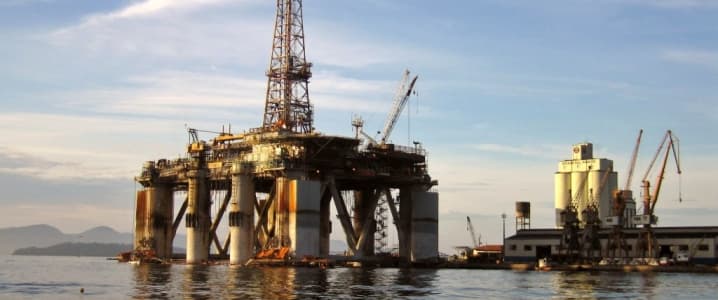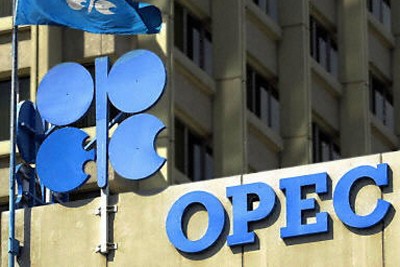Business
2020 budget threatened as oil prices crash after no OPEC deal with Russia

By BUKOLA LONGE
Nigeria’s 2020 budget estimate appears threatened as oil prices crashed below $50 on Friday, after the Organisation of Oil Exporting Countries (OPEC) failed to reach a deal with Russia to cut output.
The budget, which was signed by President Muhammadu Buhari, in December, was based on oil production of 2.18 million barrels per day with an oil price benchmark of $57 per barrel.
The Federal Government is looking to generate N2.64tn oil revenue, which is 32.34 per cent of expected total revenue for this year, with non-oil revenue projection being N1.80tn.
Brent, against which Nigeria’s crude oil is priced, had risen above $70 per barrel early in January following the killing of an Iranian general, Qassem Soleimani, by the US on January 3. But the price, which has been on a downward trend since the coronavirus broke out in December, plunged to $46.13 as of 7.44pm Nigerian time on Friday.
Business Hallmark gathered that Russia balked at supporting the move initiated by OPEC in response to weak demands in the season of coronavirus that has pummelled global economy.
Oil prices were in free-fall after the talks for a 1.5m barrels cut collapsed. Brent dropped almost 8 percent at $46.16 a barrel and West Texas Intermediate fell 7.8% at $42.33.
Failure to secure a deal between OPEC, Russia and other members of an alliance known as OPEC+ that has propped up prices since 2016 could send weak oil prices into a tailspin.
A high-level Russian source and two OPEC sources told Reuters Russian Energy Minister Alexander Novak told OPEC that Moscow was only ready to discuss extending existing output cuts.
“That position won’t change,” the Russian source said as OPEC+ ministers gathered at OPEC’s Vienna headquarters, where formal talks designed to thrash out a deal were postponed for hours as ministers held bilateral talks.
Earlier on Friday, UAE’s Energy Minister Suhail al-Mazrouei, said he did not expect OPEC to go ahead and cut without Russia, even though his Nigerian counterpart Timipre Sylva admitted the cartel would have to cut even if Russia does not get on board with the additional cuts.
“That’s really not going to be very good for us but we expect a deal,” Sylva said as quoted by S&P Global Platts.
Ministers from the Organization of the Petroleum Exporting Countries said the coronavirus outbreak had created an “unprecedented situation” that demanded action, as measures to stop the virus spreading dampens global economic activity and oil demand.
Forecasts for 2020 demand growth have been slashed but Moscow has long argued it was too early to assess the impact and sources said Novak delivered the same message on Friday.
Meanwhile, PricewaterhouseCoopers (PwC) has projected that Africa’s equity capital market (ECM) will sustain its volatile trend in the 2020 financial year amid promising prospects for growth if the authorities do the needful.
The projection derives from the poor performance of the ECM last year as the activity declined sharply both in volume and value when compared to the level in the preceding year, with 2019 posting the lowest proceeds raised in ten years.
Specifically, during the year in review of African equity markets, the overall ECM activity in 2019 declined in value and volume by 44% and 29% respectively, compared to 2018.
According to the professional services firm, the decline was mainly related to activity in South Africa, where ECM activity dropped by 69% in terms of value and 46% in terms of volume compared to 2018, and where Africa’s largest bourse saw no capital raised through IPOs in 2019.
Despite the lackluster performances of most African bourses and the volatility that characterised their operations last year, the global consultancy outfit, in its 2019 African Capital Markets Watch, which captured the value of transactions of the bourses across equity, Initial Public Offerings (IPOs) and Further Offers (FOs) market segments publication issued today, was optimistic that 2020 held good promises for investment.
Commenting on the ECM value slump, PwC Africa Capital Markets leader, Andrew Del Boccio, noted that “a state of uncertainty seems to have become the ‘new normal’, and we expect some degree of volatility and caution to continue to affect Africa’s capital markets activity in 2020. “This sentiment is also reflected in PwC’s annual 2019 Global CEO Survey, in which African CEOs noted their expectations for a slowdown in economic growth as well as their top concerns, which included political risk, over-regulation, and worries about finding top talent to fill the skills-gap”, the investment analyst added.
The firm’s Africa Capital Markets Director, Alice Tomdio, predicted: “Consistent with prior years, we expect governments across the African continent to continue to implement strategies towards building robust capital markets.
“Some recent examples include Ethiopia’s plan to launch a local stock market during this year, and Angola’s roadmap to privatise its state-owned companies by 2022. In addition, we can expect to see other announced privatisations in Nigeria, Malawi and Ghana.
“Despite the lackluster activity in 2019, we saw significant progress in various capital markets initiatives during the year, including the drive for sustainable finance through the issuance of social, green and infrastructure bonds in South Africa, Kenya, and Nigeria.
“Together with a move towards more local currency and blended financing, we expect this trend to continue, and to unlock new sources of capital for African issuers”, she added.
In the report, PwC linked the general slowdown in equity markets to a series of macroeconomic factors. These include an ECM deceleration in global markets, caution in the period leading up to key local elections, which took place in both Nigeria and South Africa in 2019, and more specifically in South Africa, growing political gridlock and economic stagnation.









